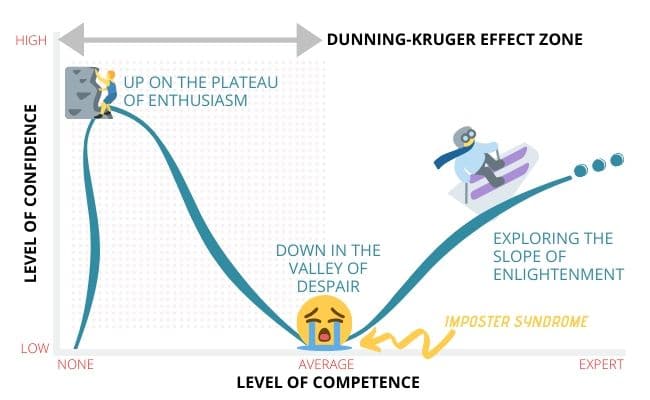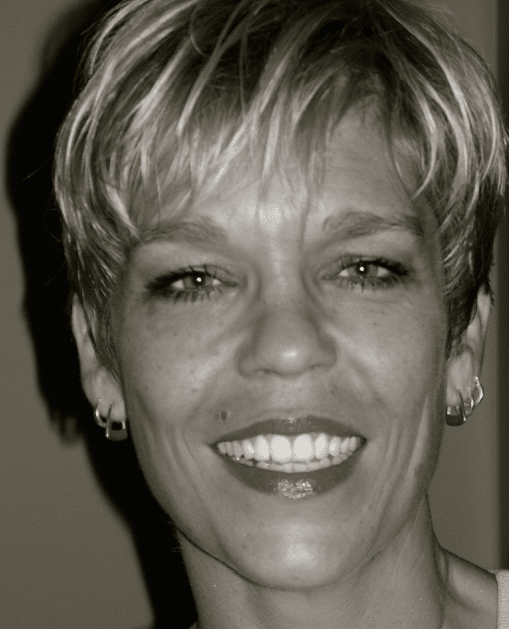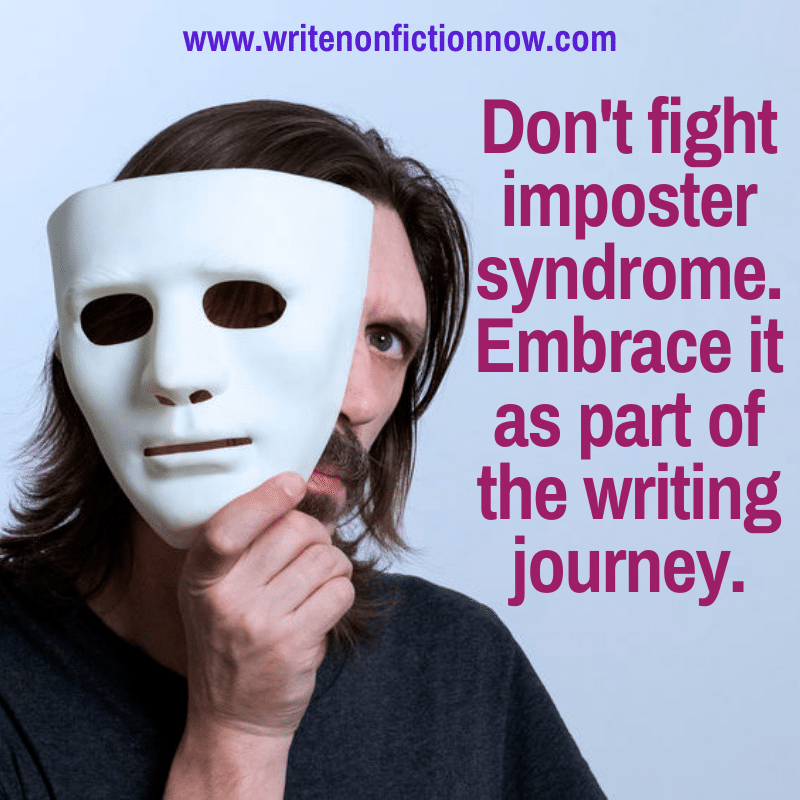Too many nonfiction writers struggle to get words on paper and publish their work because they have “imposter syndrome.” It’s time to shake off the stigma of this self-inflicted affliction and embrace it as a necessary step towards thought leadership and expert author status.
Imposter syndrome is “a collection of feelings of inadequacy that persist despite evident success,” according to the Harvard Business Review. “‘Imposters’ suffer from chronic self-doubt and a sense of intellectual fraudulence that override any feelings of success or external proof of their competence.”
Sound like you?
As a nonfiction writer, you are an expert on your subject matter, even if that subject is your life. And your knowledge, experience, and skill give you the ability to be a thought leader in your industry or subject area. But imposter syndrome can hold you back, or it can push you toward authorship.
Nonfiction Writer’s Imposter Syndrome Signs
You can have imposter syndrome without having low self-esteem or a lack of self-confidence. Indeed, many high achieving, highly successful people suffer from this malady, especially perfectionists, women, and academics.
For nonfiction writers, the signs of imposter syndrome are pretty obvious. After your initial enthusiasm for your nonfiction book, article, essay, or blog post idea, you might experience a massive wave of doubt. Your internal chatter—and sometimes even what you say aloud to others—sounds like this: “Who am I to be writing a book about XX?” “I’m not an expert!” “What do I know?” “Am I a fraud?” “There are so many people that know more about this topic than me,” and “I shouldn’t be writing this.”
Embrace Imposter Syndrome
Rather than trying to fight these feelings, embrace them. They’ll help you become a better nonfiction author because doubts are a necessary step along the writer’s journey.
The quest for knowledge has three stages, and each one is necessary for our author journey:
- The Peak of Enthusiasm—This is when you have limited knowledge and awareness, and you think you know it all—but you don’t. Your confidence is high, and your competence is low.
- The Valley of Despair—Imposter syndrome lives at this stage. At this point in your learning curve, you feel like a fraud. Even though your competence has grown, your confidence has dropped. You’re aware of how little you really know.
- The Slope of Enlightenment—Now, you realize your limitations but embrace them because they drive your thirst for knowledge. Your competence is growing in leaps and bounds, and so is your confidence.
The Confidence-Competence Loop
 You can think of this as a confidence-competence loop. The more competence you have, the more confidence you feel.
You can think of this as a confidence-competence loop. The more competence you have, the more confidence you feel.
Sometimes people with low knowledge or understanding overestimate their ability, so much so they’re not able to recognize their own incompetence. As soon as they realize their lack of competence, their confidence drops, and they fall victim to imposter syndrome. In psychology, this is called the Dunning-Kruger effect. And it tends to occur because a lack of self-awareness prevents a person from accurately assessing their skills.
However, as discussed in the world of high performance, if you have more confidence, it becomes easier to achieve more (and recognize) competence.
Let’s look closer at each of the three stages above.
1. The Peak of Enthusiasm Mountain
When I published my first travel guide back in 2013, I was full of enthusiasm. I started a self-publishing blog and shared my knowledge with other travel writers. I wrote about my first-hand experience and spread my expertise to an unwitting audience. I wrote in a bubble and didn’t interact within the self-publishing community because I’d been there, done that. What more was there to learn?

Lots of writers get stuck on this peak, and it’s a dangerous place to be. If you think you know everything about a topic, you’re not open to new ideas or information. You won’t bother to keep your finger on your industry’s pulse for new developments, and you don’t see the need to connect and collaborate with other people within your industry.
Why should you? You know it all.
People at this stage of the learning curve have delusions about their expertise level, and they can’t advance until they recognize their limitations.
2. The Valley of Despair
I’d self-published half a dozen books before I wrote a book about self-publishing. Although I had first-hand experience of publishing direct through multiple distributors and retailers, I felt like a fraud. Who was I to write a book about self-publishing?
 But feelings of self-doubt and inadequacy mean you have enough awareness to know your limitations. Only then will you become open-minded enough to continue your quest for knowledge.
But feelings of self-doubt and inadequacy mean you have enough awareness to know your limitations. Only then will you become open-minded enough to continue your quest for knowledge.
While it’s okay to let yourself have some contemplation time, don’t wallow in the valley for too long. View it as a necessary stepping stone, and use this phase to take stock of your limitations and plan your escape.
This is when you embrace imposter syndrome. The best way to do this is with a period of self-evaluation. Your feelings of inadequacy drive your need to know or understand more. Take the time to identify the areas responsible for your doubts, and use that list to overcome them and move on.
The key to embracing imposter syndrome is to always be open to new ideas and continually evaluate your competence level.
3. The Slope of Enlightenment
I accepted that I would never know everything about my topic because self-publishing is continuously evolving and changing. I knew I needed to be open to new ideas, concepts, and perceptions because my niche is a moving target.
 Yet, there was one thing I could control: my ability to use my experience and gather and package the knowledge I thought would be most useful and relevant to my target audience.
Yet, there was one thing I could control: my ability to use my experience and gather and package the knowledge I thought would be most useful and relevant to my target audience.
After you’ve worked your way out of the Valley of Despair, you can have an exciting and fruitful journey along the Slope of Enlightenment. You know what you know, and you’re open to learning more. You’re aware of your limitations but have the drive to expand your knowledge.
This journey to learn more doesn’t have a final destination; it’s an ongoing process. You’re not immune from feeling like an imposter. Still, with the level of awareness you possess, you have the tools and mindset to overcome it.
Your knowledge and experience will provide the momentum that pushes you through any feelings of self-doubt up that slope to accumulate more expertise.
Embrace your Inner Imposter
Imposter syndrome can be an isolating experience. We keep it to ourselves out of embarrassment, but it’s a universal phenomenon that affects most people at least once in their lifetimes. For writers, it can become a persistent malady, though.
It’s easy to fall into the trap of thinking you’re not good enough. This is especially true if you’re a perfectionist. Beating yourself up about feelings of inadequacy can get in the way of your goals of authorship.
Don’t be a victim of imposter syndrome. Instead, use it as motivation to move you forward and finish the books you want to write.
Have you suffered from imposter syndrome? In a comment below, share the tools or techniques that helped you get your mojo back. And if you found this article inspiring, please share it with your social networks.
About the Author
Jay Art ale abandoned her corporate career to become a digital nomad and full-time writer. She’s an avid blogger and a nonfiction author helping travel writers and travel bloggers achieve their self-publishing goals. Join her at Birds of a Feather Press where she shares tips, advice, and inspiration to writers with an independent spirit.
ale abandoned her corporate career to become a digital nomad and full-time writer. She’s an avid blogger and a nonfiction author helping travel writers and travel bloggers achieve their self-publishing goals. Join her at Birds of a Feather Press where she shares tips, advice, and inspiration to writers with an independent spirit.
 Do you want to learn more about becoming a nonfiction author? Check out the Nonfiction Writers’ University. Get the basic education you need and the coaching to help you succeed as a nonfiction writer. Take advantage of monthly live educational and group coaching events. Enjoy a 30-day trial membership for only $1.
Do you want to learn more about becoming a nonfiction author? Check out the Nonfiction Writers’ University. Get the basic education you need and the coaching to help you succeed as a nonfiction writer. Take advantage of monthly live educational and group coaching events. Enjoy a 30-day trial membership for only $1.
Do you want a more advanced approach to your nonfiction writing education? Join the Nonfiction Writers’ University MASTERS program. Receive ongoing live Certified High Performance Coaching, Author Training, and Authorprenuership Training as well as monthly educational and group coaching events. Learn all the steps to becoming a successful—and profitable—author. Discover how (finally) to write consistently, boldly, enthusiastically, and productively. Develop the mindsets, strategies, habits of the world’s most successful writers. Click here to learn more.
Photo courtesy of romsvetnik.

Jerry Levin says
So now I understand that when I don’t even consider the possibility that I might be an impostor, I am the biggest impostor, and a danger to myself and others.
As I come to know more, I begin to realize how much I really don’t know and the impostor syndrome sets in. Now, paradoxically, I am somewhat less of an impostor.
If I use the fear that generates as fuel to dig in and learn more, I am well on the road to becoming an authentic expert.
If I let the fear stop me. I’m stuck in the worst possible place, feeling like an impostor and not working to change that because my ego can’t stand the challenge.
Nina Amir says
Sounds like this post sent you into a downward spiral, Jerry. I’m sorry. How can I help?